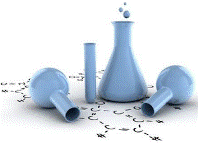Chemical and Biomolecular Engineering, Department of

Department of Chemical and Biomolecular Engineering: Faculty Publications
Date of this Version
2016
Document Type
Article
Citation
Cancer Res. 2015 May 15; 75(10): 2039–2048.
Abstract
Temozolomide is used widely to treat malignant glioma but the overall response to this agent is generally poor. Resistance to DNA damaging drugs such as temozolomide has been related to the induction of anti-apoptotic proteins. Specifically, the transcription factor NF-κB has been suggested to participate in promoting the survival of cells exposed to chemotherapy. To identify factors that modulate cytotoxicity in the setting of DNA damage, we used an unbiased strategy to examine the NF-κB-dependent expression profile induced by temozolomide. By this route, we defined the decoy receptor DcR1 as a temozolomide response gene induced by a mechanism relying upon p50/NF-κB1. A conserved NF-κB binding sequence (κB-site) was identified in the proximal promoter and demonstrated to be required for DcR1 induction by temozolomide. Loss-of-function and gain-of-function studies reveal that the atypical IκB protein, Bcl3, is also required for induction of DcR1 by temozolomide. Mechanistically, DcR1 attenuates temozolomide efficacy by blunting activation of the Fas receptor pathway in p53+/+ glioma cells. Intracranial xenograft studies show that DcR1 depletion in glioma cells enhances the efficacy of temozolomide. Taken together, our results show how DcR1 upregulation mediates temozolomide resistance, and provide a rationale for DcR1 targeting as a strategy to sensitize gliomas to this widely used chemotherapy.


Comments
Copyright 2016 Mansour et al.